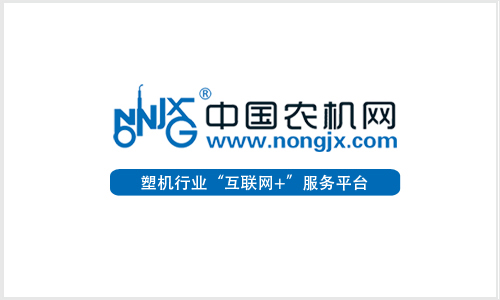Wool tycoon Wen Qingnan: Helping Australia revitalize the wool industry to worry about agricultural trade
[China Agricultural Machinery Industry News] Recently, an article in the US media has drawn attention. The article explains Australia's issue of wool, which states that not everyone welcomes foreign investment. China’s surge in Australian agricultural investment has made Australians increasingly worried that they may lose control of precious agricultural land. Chinese wool tycoon Wen Qingnan will work hard to help revitalize the Australian wool industry. He also hopes to revolutionize Australians against foreign countries. Investor's skepticism. 

Wool tycoon Wen Qingnan: Helping Australia revitalize the wool industry to worry about agricultural trade
On May 31, the US media said that in Victoria, central Australia, a Chinese wool tycoon will try to help revitalize Australian wool when the biting cold wind blows through the 170-year-old Lalal sheep farm. He also hopes to revolutionize Australians’ skepticism about foreign investors.
On the May 29th issue of the Chicago Tribune website, an article entitled "Wool, China may be able to teach Australia a little experience" said that in 2014, Wen Qingnan (sound) acquired the Lalal sheep farm. Now, he plans to build a shelter for the new lambs in an idle hay shed to increase the survival rate of the lamb by 40%. He also expanded the size of the flock. Such measures may help the world's largest wool exporters to restore the profits of wool production. In the past 20 years, lower-priced wool substitutes have had an impact on sheep farmers and wool production has shrunk.
The article said, but not everyone welcomes foreign investment. Australia is one of the world's leading exporters, and its exports cover almost all agricultural and livestock products, from beef to wheat. The surge in Chinese agricultural investment in Australia has made Australians increasingly worried that they may lose control of precious agricultural land. Before the general election in July this year, the theme was increasingly important among rural voters. Wen Qingnan runs China's big wool processing factory, and he believes that Australians will change their minds.
Wen Qingnan, Chairman of Jiangsu Tianyu Wool Industry (Zhangjiagang Free Trade Zone) Co., Ltd. said: “Once the public sees more and more investors are contributing to the local economy and the community, their attitude towards foreign investment in Australian agriculture will change. ""
Almost since the early 19th century, it has a high-quality Merino flock, and Australia has been a major exporter of fine wool in the world. But since 1981, Australian fine wool exports have fallen by 44% and are expected to continue to decline this year, in part because wool is more expensive to produce than cotton or man-made fibers. Many sheep farmers are losing money.
Wen Qingnan hopes to reduce the mortality rate of the lamb by scanning all the ewes to detect multiple births and provide additional feeding and care. It is estimated that 10 million lambs die each year in Australia after birth. The goal of Wen Qingnan is to increase the survival rate of the lamb by 30% to 40%. Since October last year, he has also purchased 1,600 lambs, expanding the size of the flock to about 12,000.
Wen Qingnan also intends to share his skills with sheep farmers across Australia, and he hopes that such efforts will help eliminate Australian concerns about agricultural transactions. According to the Australian government, in the last fiscal year, the amount of investment projects proposed by Chinese mainland and Hong Kong entities soared to four times that of the previous fiscal year, reaching A$2.5 billion (US$1.8 billion).
Meredith Peyette, head of the Food and Agriculture Department at King & Wood Law Firm, said: “Those places where transactions are successful and successful are also places where foreign investors, especially Chinese investors, interact with local communities.†2015 As a consultant, Pinter helped the acquisition of a dairy company in Australia by a joint venture of China New Hope Dairy.
According to the article, foreign investment is crucial for the development of agriculture, especially according to ANZ's data. By 2050, the gap between Australian agricultural and domestic funds may reach 850 billion Australian dollars.
The lack of domestic funding has not dispelled Australian concerns that foreign investors will threaten their domestic food security. According to a 2014 poll by the Loy International Policy Institute, about 60% of Australians oppose foreign investment in Australian agriculture, and 56% of respondents say the Australian government has approved too many investment projects from China.
Earlier this month, due to opposition from the Australian Liberal Party and the National Party coalition government, Shanghai Pengxin Group abandoned its plan to bid for Australia's big beef producer Kidman for A$317 million. Kidman has 101,000 square kilometers of land, accounting for about 1.3% of Australia's land area. The Labor Party said the Australian government’s move could send a wrong signal to foreign investors. According to the joint report of Fairfax and Ipsos published by the Sydney Morning Herald on May 21, the coalition government led the Labour Party with a 51% support rate (49%).
In the fierce campaign, rural ballots are crucial to Prime Minister Malcolm Turnbull. And his ruling partner, the National Party, has always expressed opposition to foreign investment in Australian agriculture.
At the Lalal Sheep Farm, a 90-minute drive west of Melbourne, wool producers and buyers from all over the world (some even from distant Uruguay) have come to discuss the production methods with Wen Qingnan. Wen Qingnan also invited local wool producers to China.
According to estimates by the Australian Wool Innovation Company, if the survival rate of a single lamb is increased by 5% and the survival rate of twin lambs is increased by 10%, the annual profit of the sheep farm will be increased by A$250 million. Australia's lamb survival rate averages around 15%, while the global average is between 9% and 20%.
In an email replying to a question from the reporter, Wen Qingnan said that the main reason for the sharp decline in Australian wool exports was the decrease in income from the sheep farm. According to the Australian Bureau of Agriculture and Resource Economics, the total capital of small sheep farms decreased by 0.4% in the five years to the 2014 fiscal year.
Wen Qingnan said: "I firmly believe that if we can cooperate to create more wealth for Australia, the public's views will change."
As a world's most populous country, China will strengthen cooperation with foreign countries, whether it is agriculture or industry or the tertiary industry. Always adhering to the principle of mutual benefit, I believe that one day will completely change the skepticism of Australians towards foreign investors.
(Original title: US media: Chinese businessmen help Australia to revitalize the wool industry to eliminate agricultural trading concerns)
Wuhan Wide Uv Led Inkjet Printer widely used in different material direct printing, like glass, ceramic, metal plate, wood, acrylic panel, KT board, PVC sheet, Melamine Sheet, Marble Board, plastic film, leather, textile etc.
We Flatbed Uv Printer adopt industrial level printing head toshiba and Richo, Printing speed reach 34M/M

Uv Flatbed Printer,Flatbed Printer,Digital Uv Flatbed Printer,Digital Flatbed Printer
Wuhan HAE Technology Co., Ltd. , https://www.chinahae.com